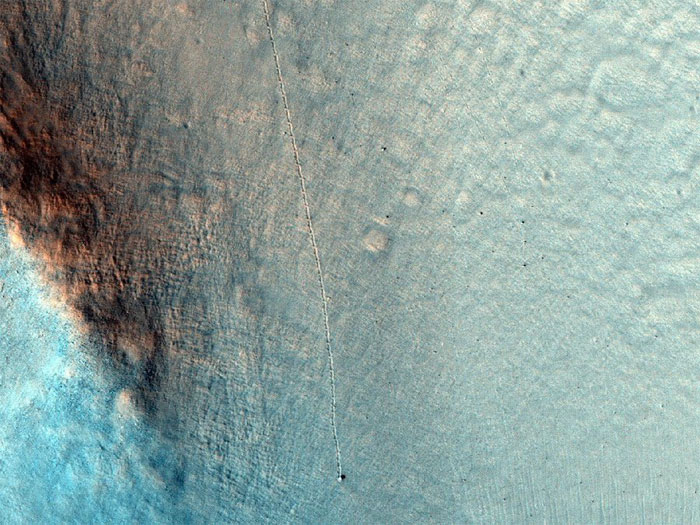.

A lone boulder leaves a track in the Martian soil on a slope at Nili Fossae, as seen by the high-resolution camera on NASA's Mars Reconnaissance Orbiter.
.
NASA's Mars Reconnaissance Orbiter has captured the track of a boulder rolling down a Red Planet slope — including the tread marks of the rock's irregularities.
This particular slope is in an interesting area: Nili Fossae, a network of valleys that scientists say would be a good bet to contain the fossilized evidence of past life on Mars. It was one of the also-rans on NASA's list of potential landing sites for the Curiosity rover, and it's on the European Space Agency's list of top prospects for future Mars missions.
There's something poignant about seeing the track of a single boulder left behind in Martian soil — a feeling you don't get when you see a whole swarm of tracks running downhill. "What started it up?" Bad Astronomy's Phil Plait asks. "A Marsquake, a nearby impact, the erosion of its underpinning due to relentless Martian winds?"
Whatever set it off, the rock appears to have an rugged shape: That's suggested by the track's regular pattern of shallower and deeper marks in the soil, Plait says. You can see that as well in the swarm of tracks. Those rocks must have thumped and bumped as they rolled down the slope.
The Nili Fossae boulder is one of the recent additions to the "Beautiful Mars" Tumblr gallery provided by the University of Arizona's HiRISE team, which operates the orbiter's High Resolution Imaging Science Experiment for NASA
Quelle: NBC
5952 Views
